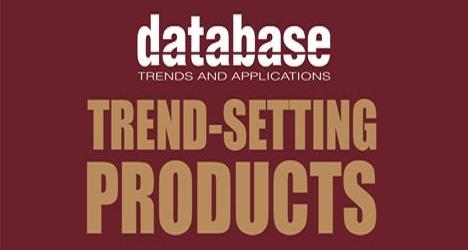Trend-Setting Products in Data and Information Management for 2016
The pressure is on for organizations to react faster to changing opportunities and risks by leveraging data to improve decision making.
The good news is that analytics-driven enterprises have more data than ever available for scrutiny. But the wealth of information being amassed from sources inside and outside organizations is creating a burden as well as an opportunity. In addition to well-established data management approaches such as relational, MultiValue, and the mainframe, there are now hybrid scenarios incorporating cloud, NoSQL, Hadoop, Spark, and other open source projects.
NoSQL is on the rise, according to a survey of data professionals conducted by Unisphere Research, a division of Information Today, Inc., and sponsored by Dell Software. The 2015 survey report showed that nearly 10% of respondents were already using NoSQL database technology, 12% were currently deploying NoSQL, and 18% expected to deploy NoSQL in 1–2 years. Cloud is also on the horizon. The 2015 IOUG survey on database manageability, sponsored by Oracle and produced by Unisphere, showed that close to half of the Oracle Database administrators questioned see cloud computing in general as a major shift in their organizations, and 43% believe that big data in all its forms is reshaping their computing landscapes. And, according to another recent Unisphere survey among IT practitioners and stakeholders who are subscribers to Database Trends and Applications and Big Data Quarterly magazines, 55% of respondents were currently using Hadoop, and of these, 42% were running four or more clusters.
In short, the days of one system to depend on are coming to an end. And, not only do organizations have to make the right choices about technologies to best manage, store, analyze, and protect data, but they also must have the right tools in place to proactively monitor and manage increasingly complex data environments for peak performance. Simple it is not.
According to the Unisphere-Dell survey, nearly half of the DBAs questioned manage more than 25 database instances and almost 10% manage more than 100 data- base instances, with the number of database instances each DBA is responsible for on the rise. In addition to management of multiple database instances, DBAs are also handling database systems from multiple vendors. Approximately 70% of the respondents said that the DBAs in their organizations were responsible for databases from at least two vendors and 7% indicated that their DBAs were responsible for managing database systems from five or more vendors.
Recent industry research studies draw a picture of organizations facing difficulties making data available and adhering to agreed-upon SLAs, while being anxious to get meaningful benefit from data. Another Unisphere study of data managers and professionals, found that one-third of respondents reported low levels of satisfaction with their data availability strategies, with most reporting difficulties with funding new efforts. Additional data centers, tools, and people to support these efforts can be expensive. The study conducted among IOUG members and sponsored by EMC revealed that businesses are seeking more uptime from service-level agreements but IT departments are struggling to provide it. According to the report, only 28% stated that, at best, they can sometimes meet their agreed-upon SLAs for downtime.
In today’s fast-paced digital economy, it is understood that effective data management strategies can have significant impact.CA’s global study of senior IT and business executives on the role of software as a business enabler found that “digital transformation” is underway as a coordinated strategy among more than half of the survey participants. The top 14% of respondents were identified as “digital disruptors” and, according to the survey, have two times higher revenue growth than mainstream organizations and two-and-a-half times higher profit growth than mainstream enterprises.
With all the advanced technologies available today for data management, and the tremendous advantages to be gained by making the right choices, there is a need for organizations to become better informed. Leading vendors are providing innovative products and services aimed at helping organizations derive more value from their data and get better performance from their systems. READ ON...
For Mike Ruane's Product Spotlight click HERE.


